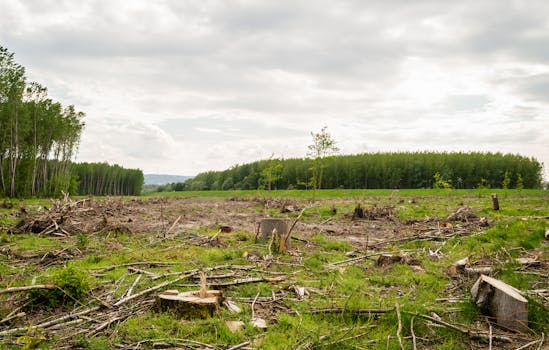
Climate change is a pressing global issue that poses a significant threat to various ecosystems across the planet. The rise in global temperatures, shifting weather patterns, and increased frequency of extreme weather events are just a few of the manifestations of climate change that have profound effects on the Earth’s ecosystems.
Understanding Climate Change
Climate change refers to long-term alterations in temperature, precipitation, wind patterns, and other elements of the Earth’s climate system. The primary driver of recent climate change is human activity, particularly the burning of fossil fuels, deforestation, and industrial processes that release greenhouse gases into the atmosphere.
Effects on Biodiversity
One of the most significant impacts of climate change on ecosystems is the loss of biodiversity. Many species are struggling to adapt to rapidly changing environments. For instance, polar bears rely on sea ice for hunting seals, and as the ice melts due to rising temperatures, their hunting grounds are diminished, leading to population declines.
Additionally, coral reefs, which are highly sensitive to temperature changes, are experiencing widespread bleaching events. This not only threatens the coral itself but also the myriad species that depend on these ecosystems for habitat and food.
Shifts in Species Distribution
Climate change is causing many species to shift their ranges in search of suitable habitats. For example, numerous bird species are moving northward or to higher elevations as temperatures rise. This shift can disrupt existing ecosystems, as new species may outcompete native species for resources, leading to further declines in biodiversity.
Altered Ecosystem Services
Healthy ecosystems provide essential services, including clean air and water, pollination of crops, and carbon storage. However, climate change jeopardizes these services. For instance, changing precipitation patterns can lead to droughts or floods, affecting agriculture and water supply. As ecosystems become stressed, their ability to provide these services diminishes, impacting human well-being and economic stability.
Conservation Efforts
In response to the challenges posed by climate change, conservation efforts are becoming increasingly crucial. Strategies such as habitat restoration, protected areas, and sustainable land management are essential to bolster ecosystem resilience. Engaging local communities in conservation initiatives can also enhance the effectiveness of these efforts.
Conclusion
The impact of climate change on global ecosystems is profound and far-reaching. It threatens biodiversity, alters species distributions, and undermines essential ecosystem services. Urgent action is needed to mitigate climate change and protect our planet’s ecosystems for future generations.



